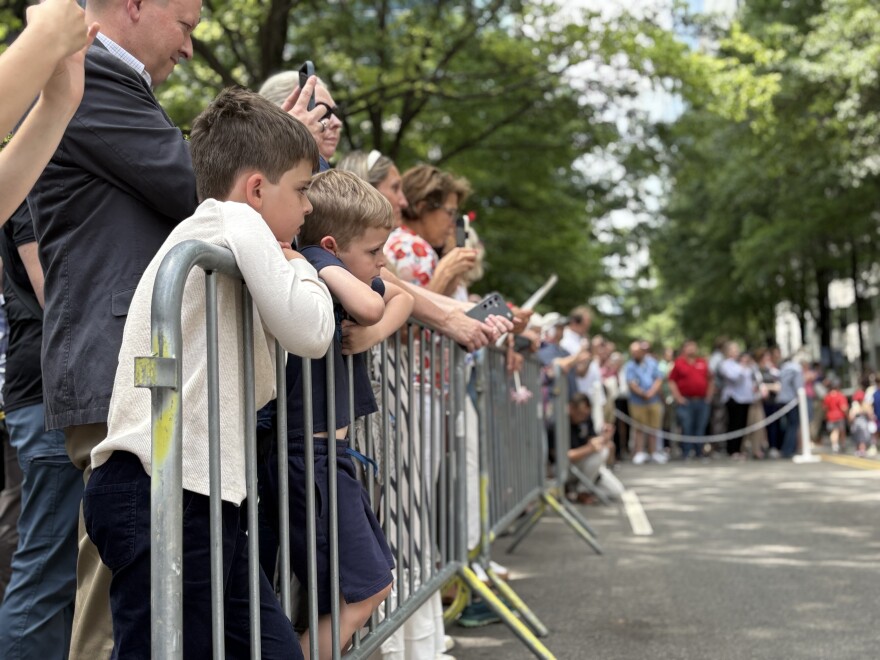The city of Charlotte marked the semiquincentennial — or 250th anniversary — of the Mecklenburg Declaration of Independence on Tuesday with a blowout celebration in uptown that featured Revolutionary War reenactors, a fife and drum band and the firing of muskets and a cannon at the intersection of Trade and Tryon.
The event honored the citizens of Mecklenburg County who, according to local historians, became the first American colonists to declare independence from Great Britain on May 20, 1775.
The story is the subject of some historical debate. Skeptics have noted the declaration wasn't mentioned in news reports of the time, and the original document is said to have burned in a house fire in April 1800 — making it difficult to authenticate.
Several of the document's signers gave sworn testimony later in life saying the declaration really happened. They included local priests, veterans, historians and civic leaders.
Still, doubters have argued they may have been confused, and recalled signing the Mecklenburg Resolves, which were passed on May 31, 1775, but stopped short of declaring independence from England.

Hundreds attend uptown celebration
Speakers, audience members and reenactors at Tuesday's ceremony in uptown Charlotte were convinced nonetheless.
Spectators wearing commemorative T-shirts and buttons filled the plaza at West Trade and North Tryon streets, and spilled onto North Tryon Street, which police had blocked off to traffic.
Speaking to the crowd, Mayor Vi Lyles said Charlotte "owed so much to those who came before us — those who took the chance, took the risk, who worked tirelessly, who laid the foundation for the Charlotte we all know and love."
Others speakers included County Commission Chair Mark Jerrell, U.S. District Judge Frank Whitney, May 20th Society Board Member Matthew Ridenhour and Chief Justice of the North Carolina Supreme Court Paul Newby.

Descendants of the declaration's signers also attended Tuesday's celebration.
They included Tom Polk, who shares the same name as his ancestor, Thomas Polk, a commander in the local militia and the primary author of the Mecklenburg Declaration.
Polk said the story of the "Meck Dec" still matters today, and it carries a lesson: "People need to stand up to tyranny and to anybody that's trying to diminish your liberties," he said.

An intersection transported through time
Tuesday's celebration included a performance by the U.S. Army Old Guard Fife and Drum Corps from Fort Myer in Northern Virginia.
After local officials delivered remarks, costumed reenactors performed scenes from the "Meck Dec" story, including a messenger delivering news of the Battles of Lexington and Concord, followed by a reading of the declaration on the Mecklenburg courthouse steps.
The declaration was passed to a reenactor on a horse playing Capt. James Jack who rode off to deliver the document to Philadelphia. A small group of militia men raised their muskets and fired, and two others fired a cannon.
As the smoke swirled, the crowd roared, and for a moment, the intersection of Trade and Tryon looked, perhaps, as it did 250 years ago — with a crowd of boisterous Mecklenburg County citizens cheering for their independence.







